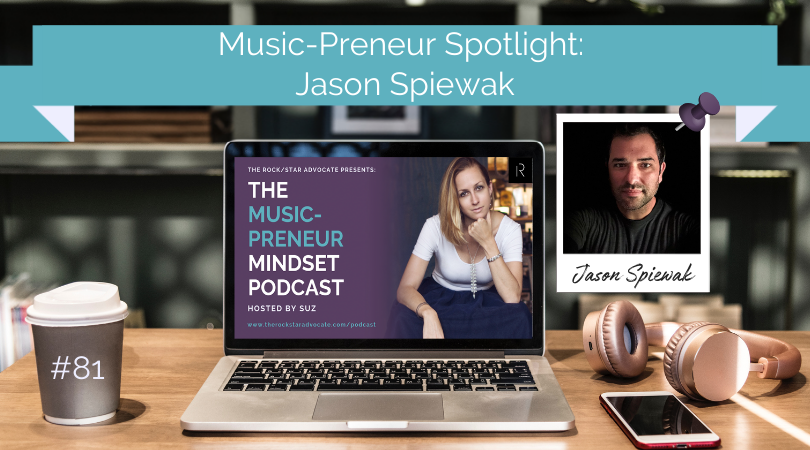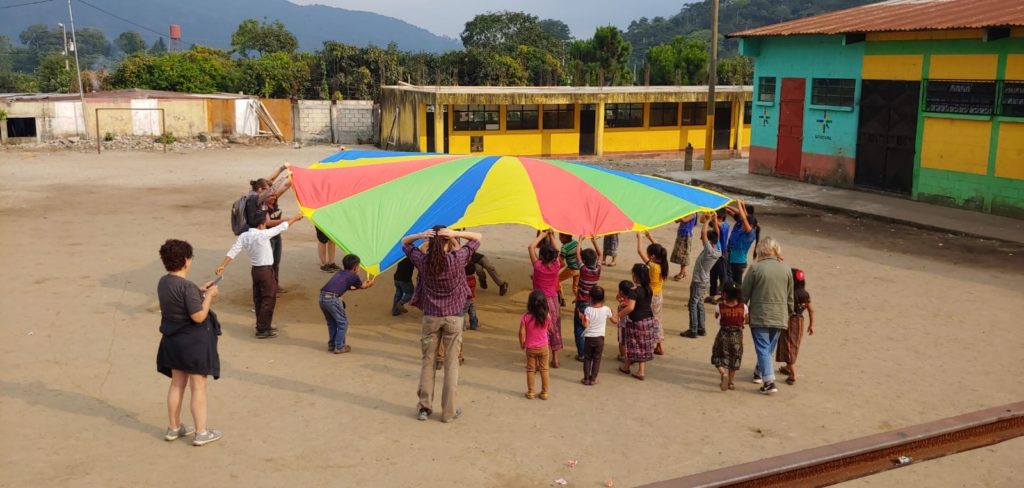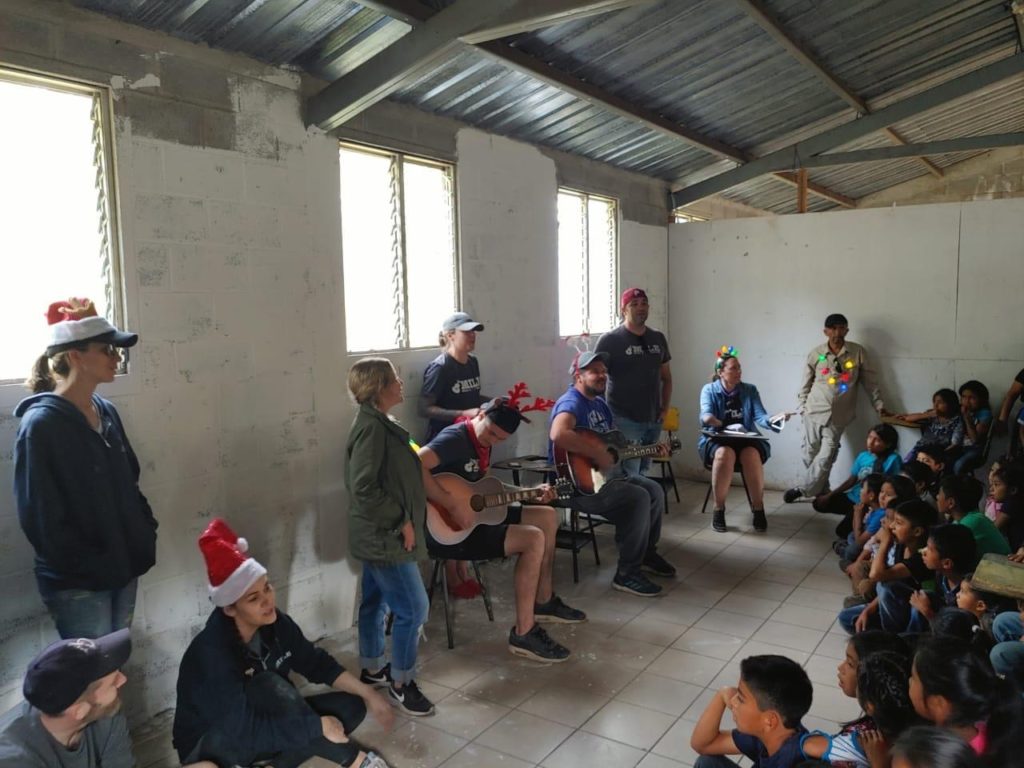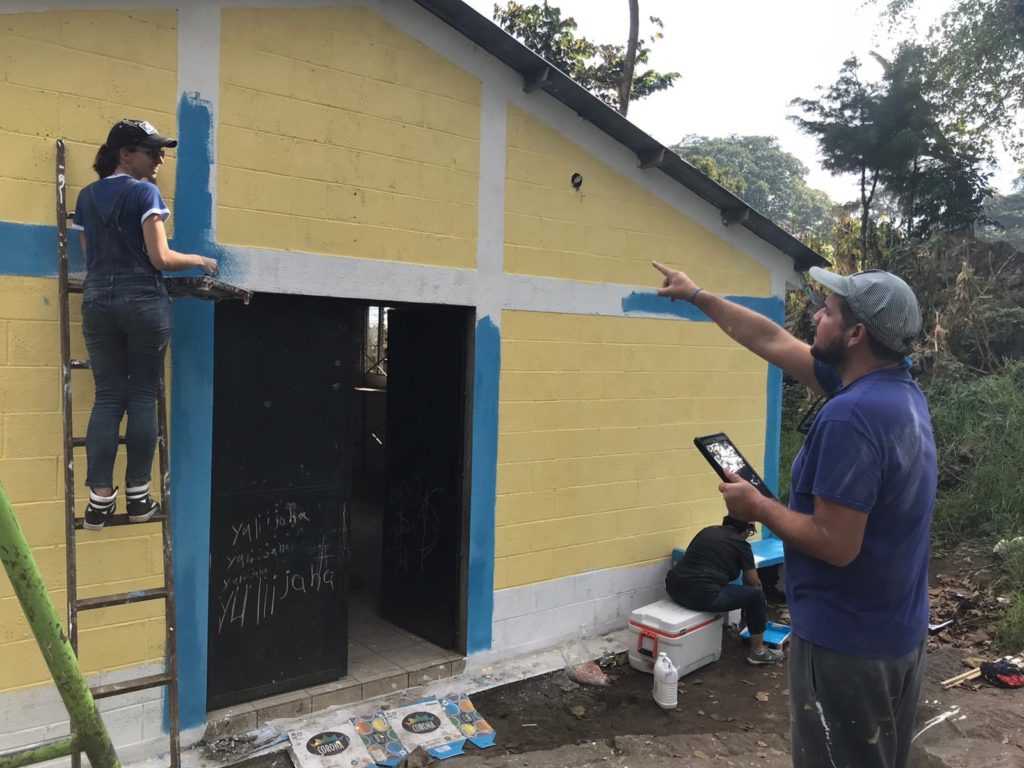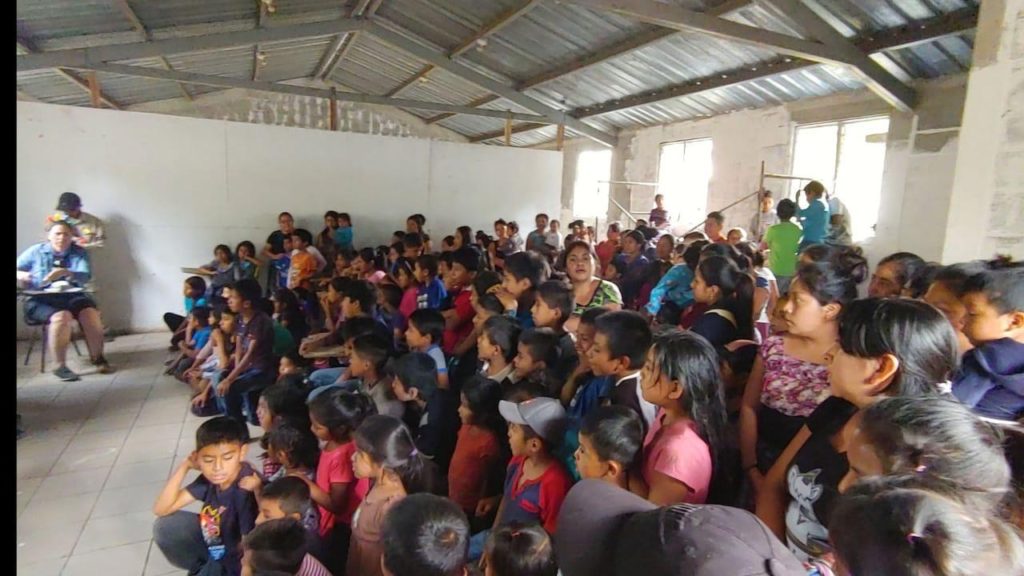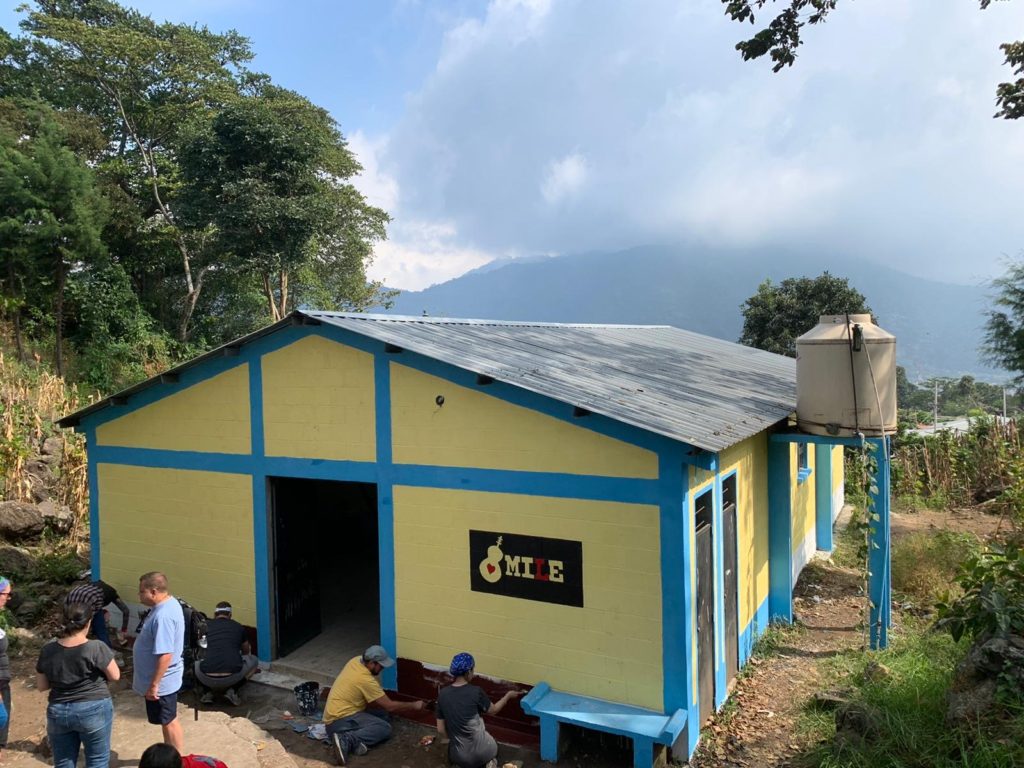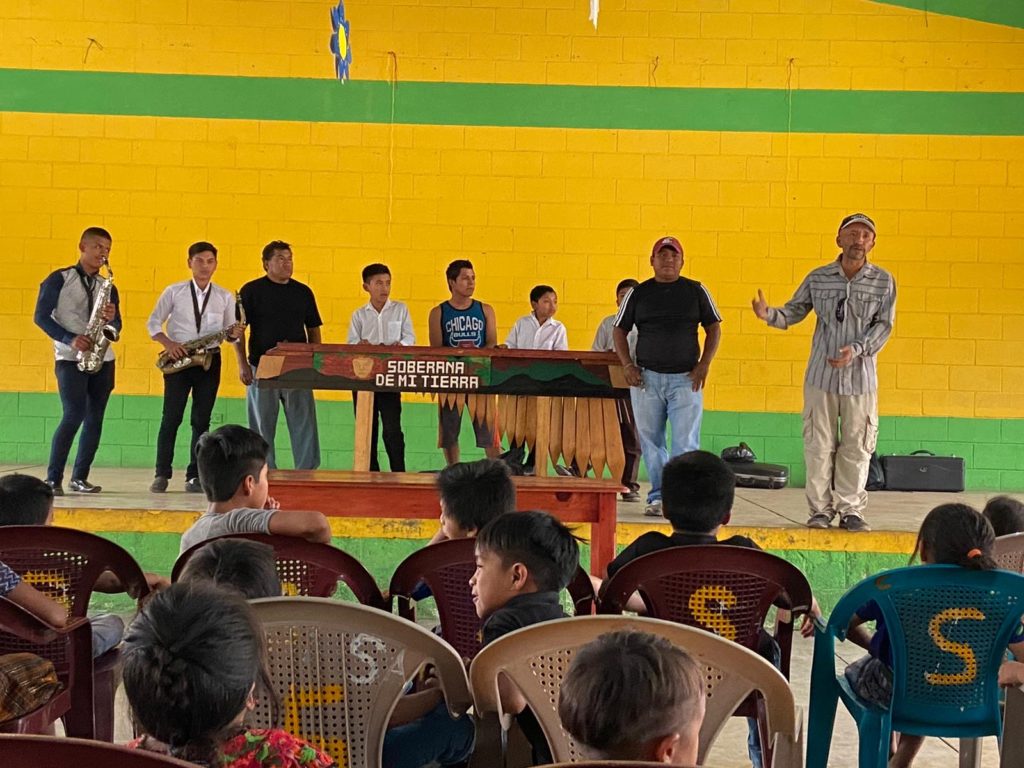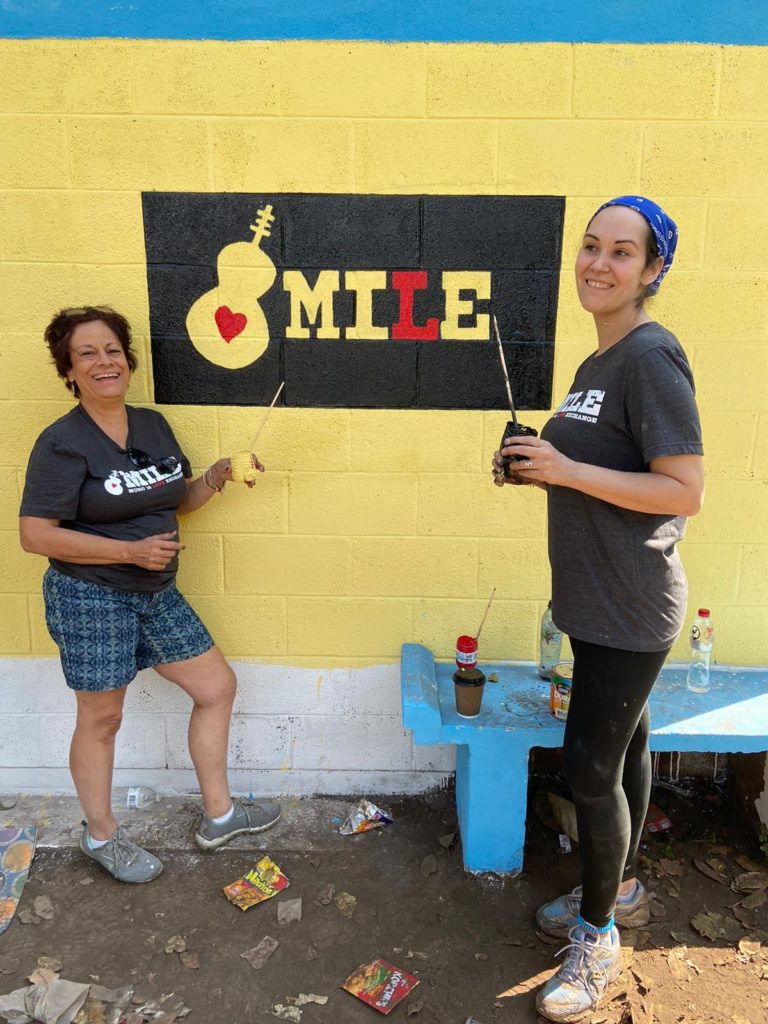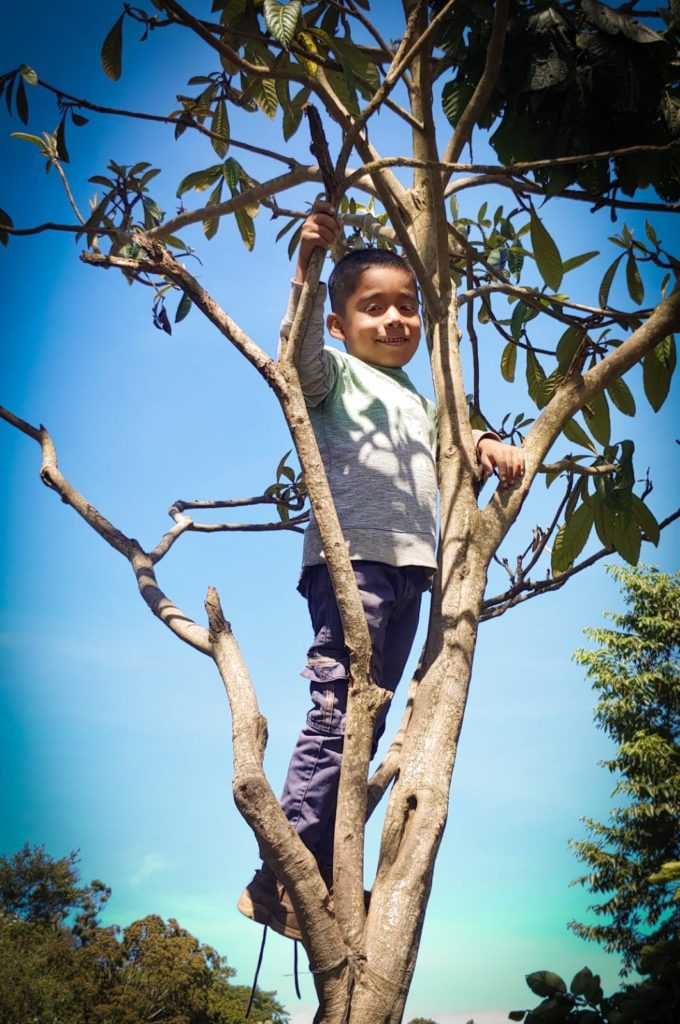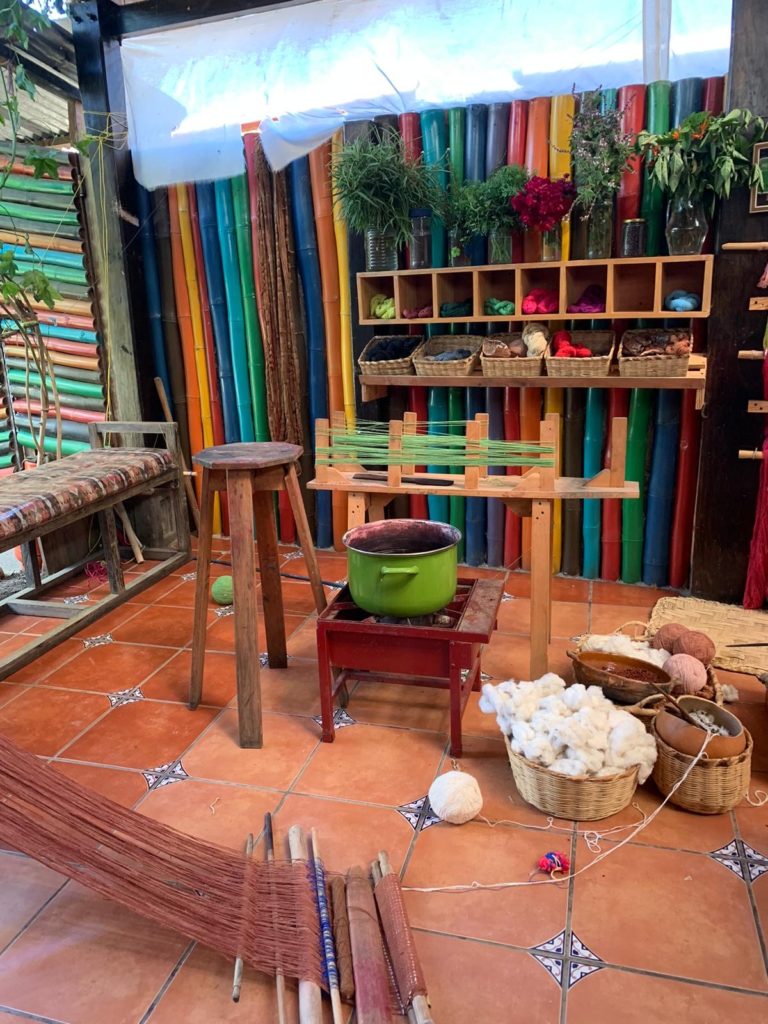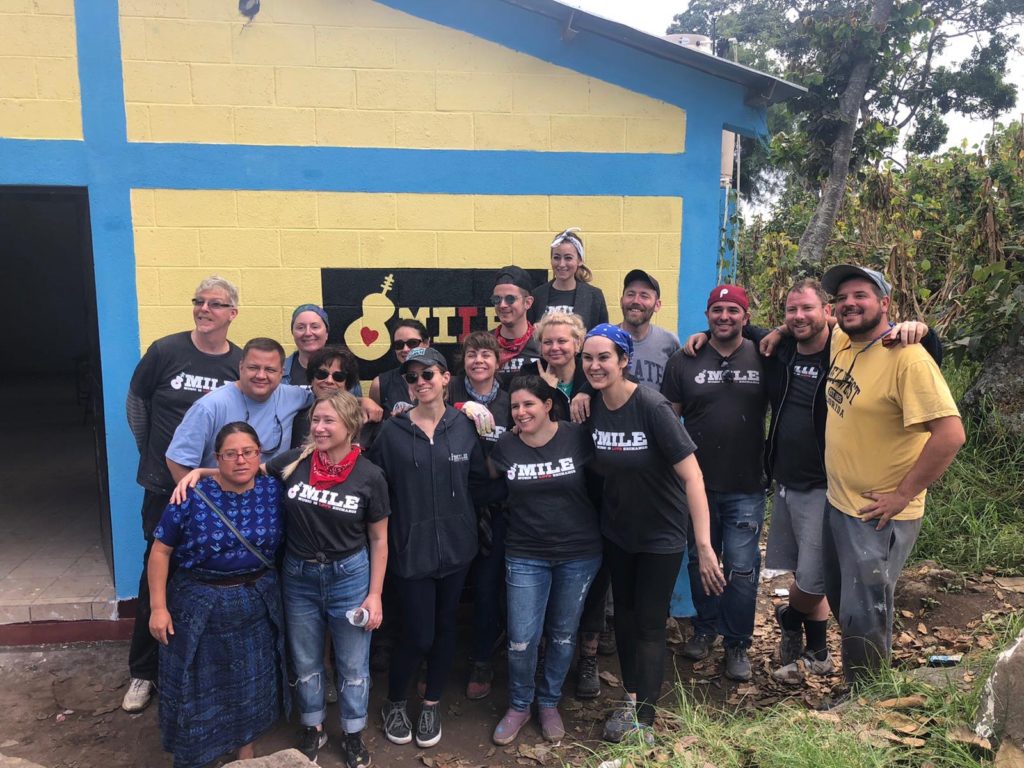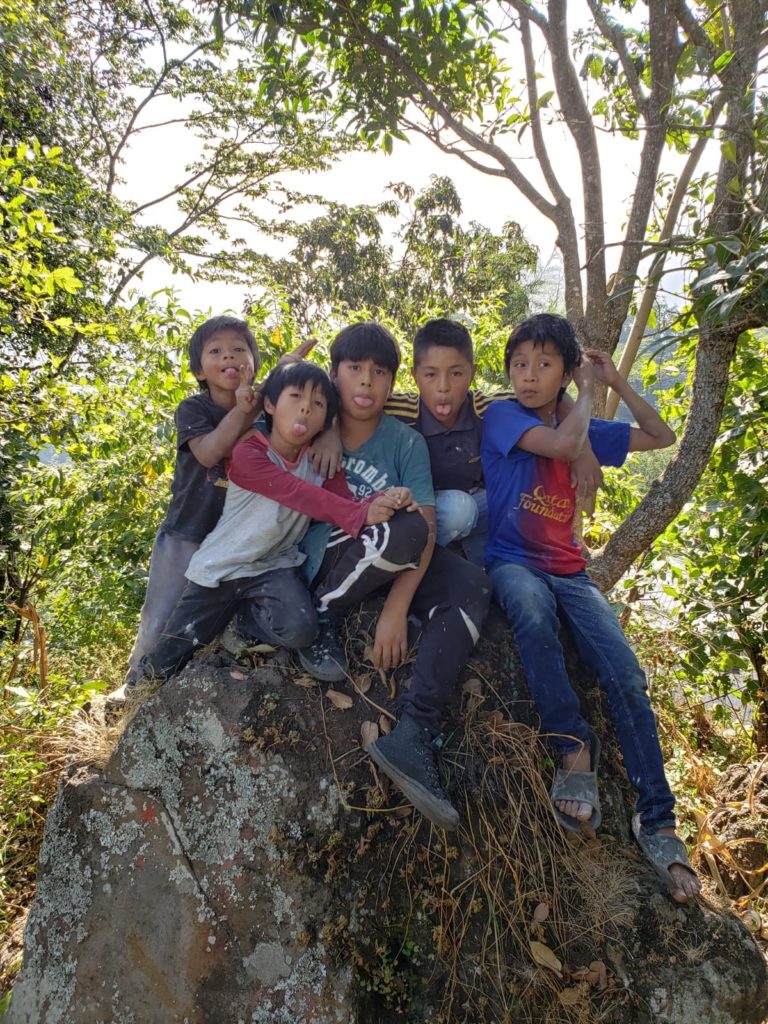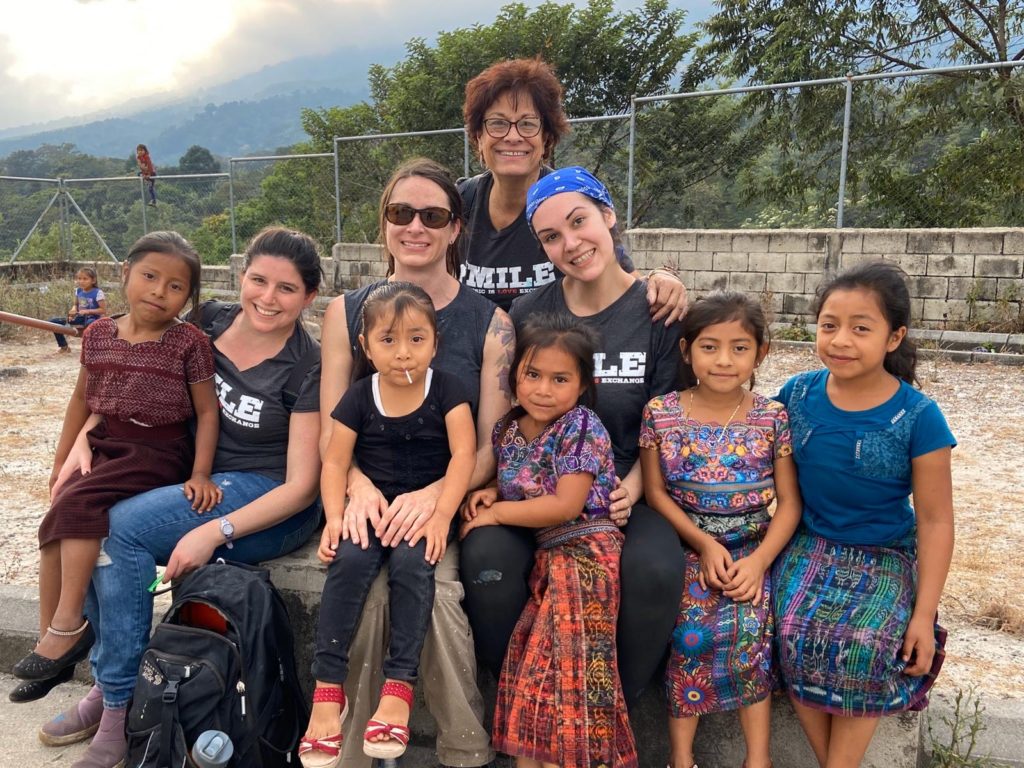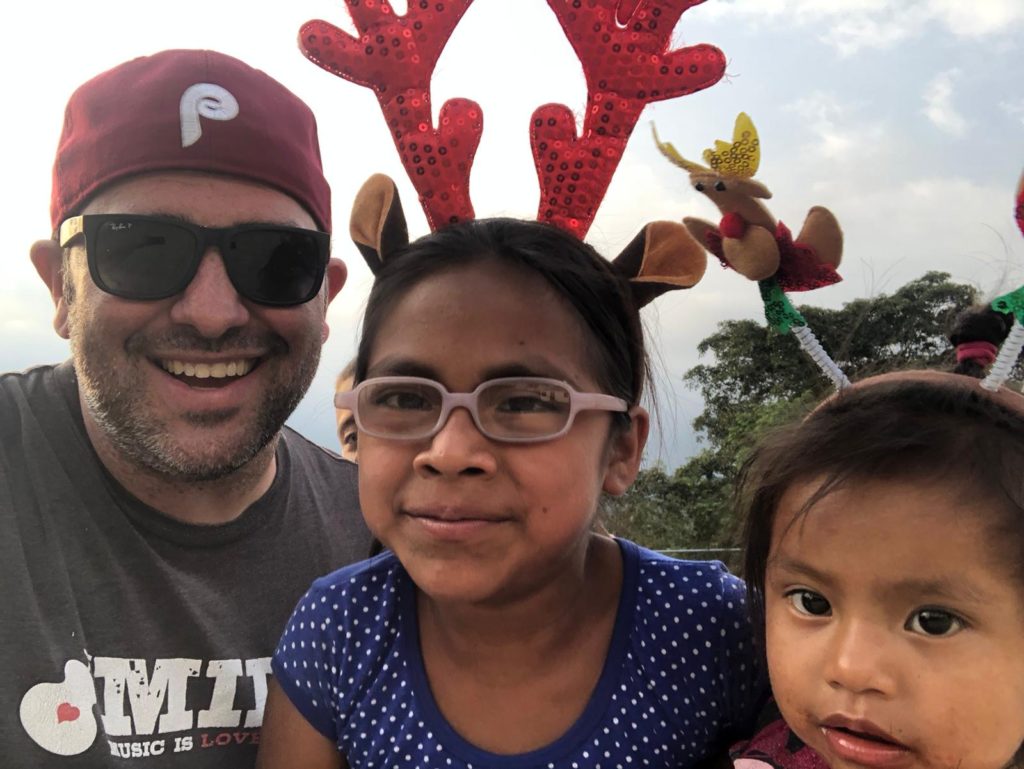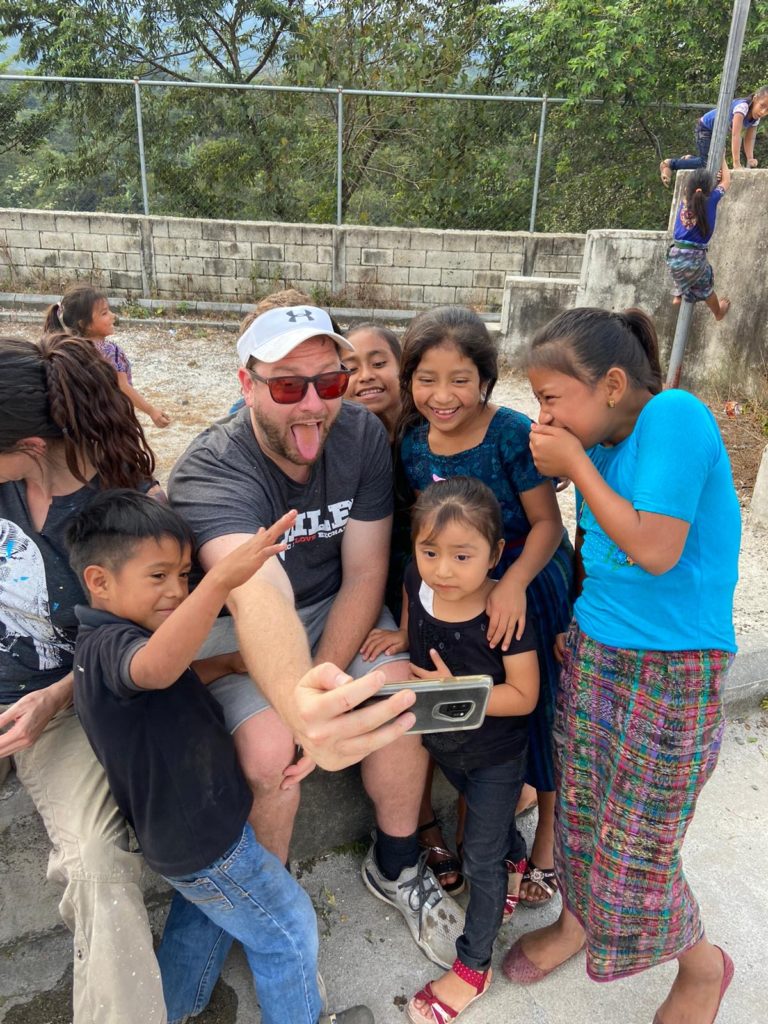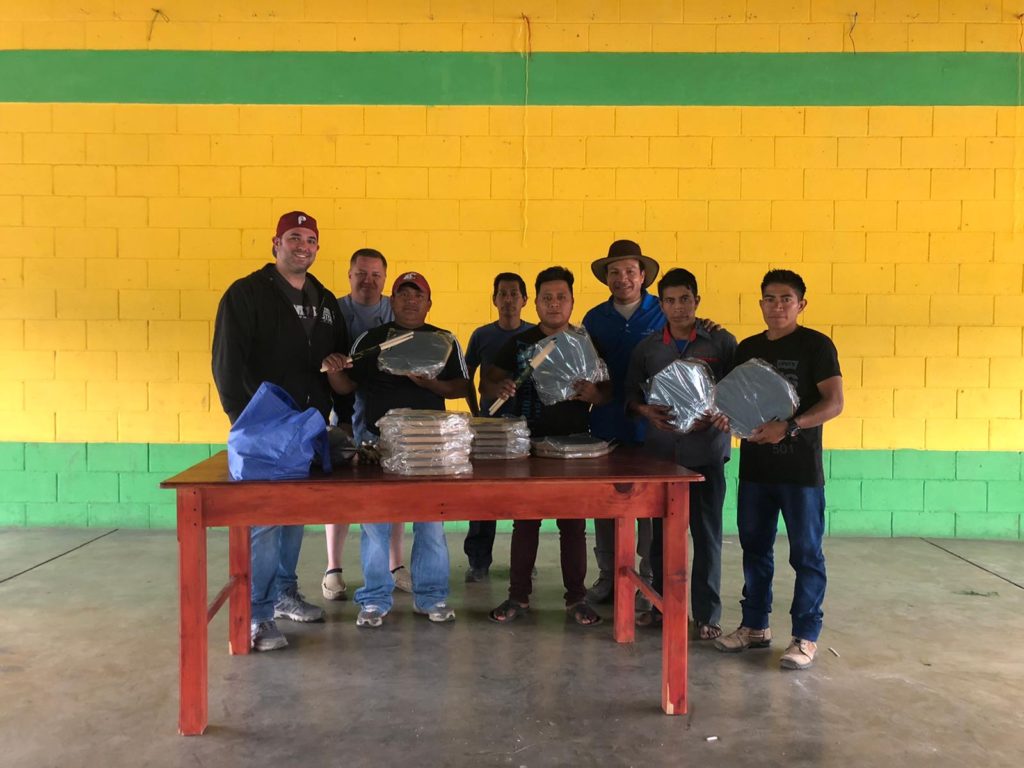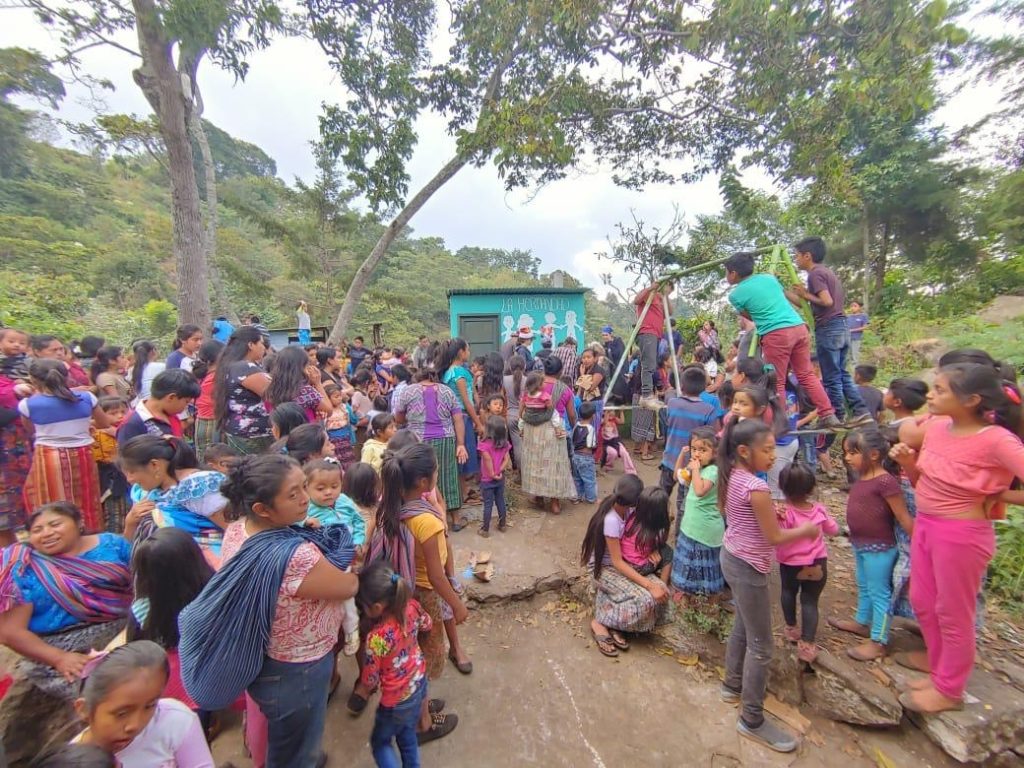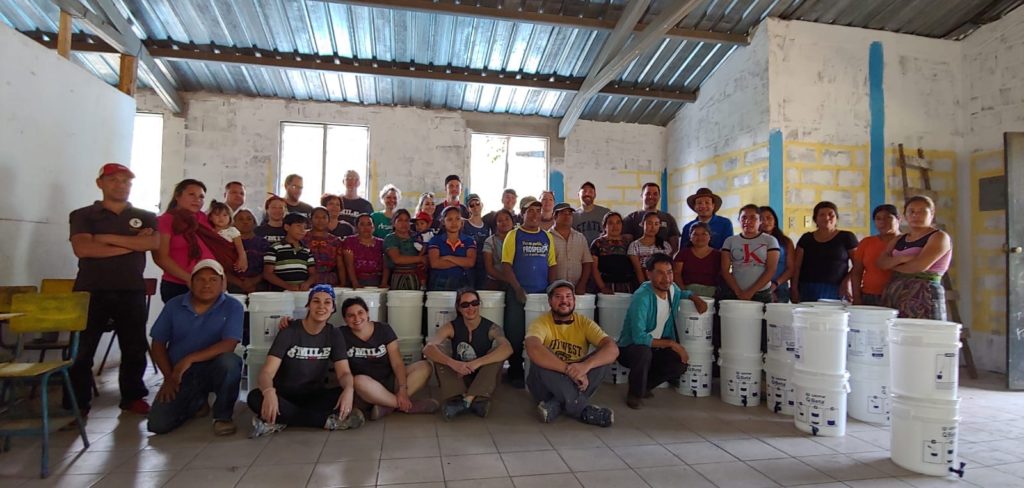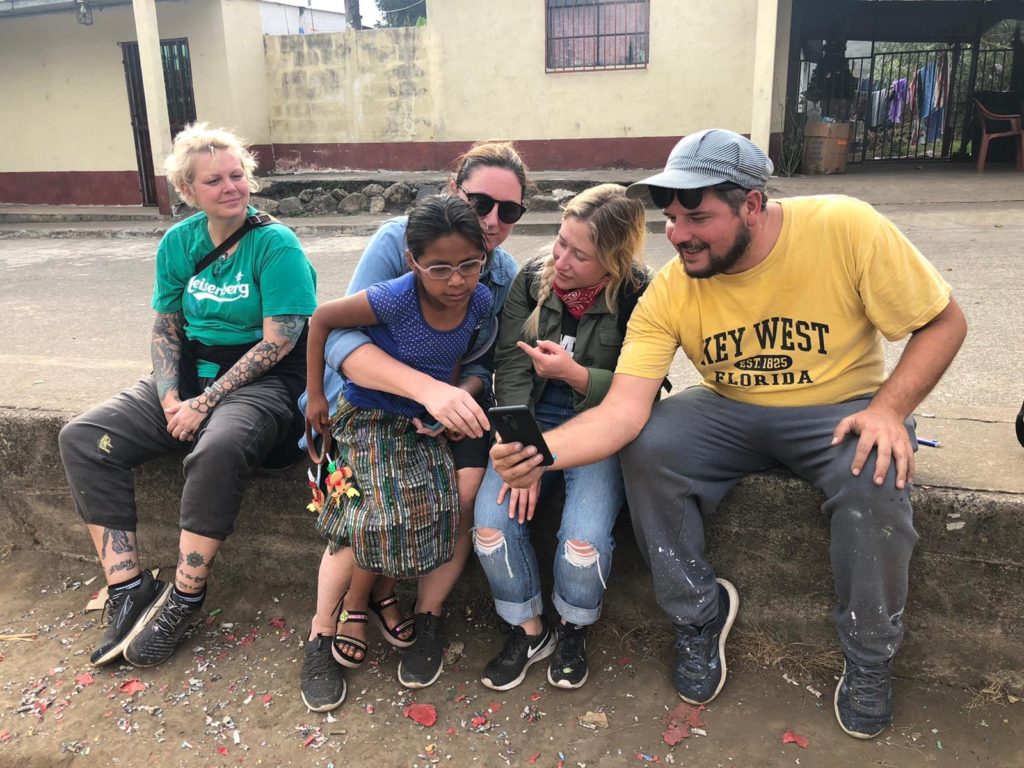Going the extra M.I.L.E.
Jason Spiewak takes us through his rise in the industry and how he’s been able to sustain through waves of immense industry change by sticking to his values & the faith that great music will always find an audience.
You’re listening to Episode 81 of the Music-Preneur Mindset Podcast.
Hello! You’re listening to Episode 81: Music-Preneur Spotlight: Jason Spiewak.
I’m your host, Suz – a mindset coach helping music professionals get clear on their goals and find the time to get it all done while maintaining a healthy work/life balance.
With so much change going on around us, it can easily feel like everything we once did is out the window and trying to figure out how to adapt on a constant basis can feel exhausting.
When I’m feeling overwhelmed and exhausted I like to talk to a good friend and forget my troubles for a bit. Earlier this year, before social distancing became a thing, a good friend of mine joined me at Luminary – an amazing coworking space that I look forward to one day returning to – we poured a glass of wine and hit record.
I felt now was the perfect time to share a conversation with a good friend who is not only inspiring with what they’ve accomplished, but who also lifts others up and provides practical advice on how to ride the waves of change.
Jason Spiewak started out as a touring musician and eventually went on to become the president of Rock Ridge Music only to leave it behind to manage independent musicians under his agency, JLS Management. From there he expanded JLS into Noble Steed Music, a full-service entertainment management company, built to represent a music-centric client base that is active worldwide.
I’m skipping a lot of steps here, but I’ll let him fill you in on the details.
We cover a lot in this conversation – the history of the industry over the last 20 years, what managers like him look for in the artists they work with, and how you can join us this December as we head once again to Guatemala for a service trip that is sure to change your life, or at the very least expand your world. As of the time of this episode being published, the trip is still moving forward.
I’ve left additional information on all we discussed in the show notes, including some gorgeous photos of our trip last December, so be sure to head on over to www.therockstaradvocate.com/ep81 to see what we’re talking about!
This is one of our longer episodes, so kick back and find comfort in Jason’s lessons that teach us while we’re going through a lot of change right now, those who stay curious and open to trying new things will do just fine.
You ready???
Suz: My good friend, Jason how are you?
Jason: I’m well.
Suz: Tell us a little bit about your journey how you got started in this whole masochistic industry that is music.
Jason: Well, my name is Jason Spiewak and I am forty three. I’m a Scorpio. I don’t believe in horoscopes, I think it’s all bullshit – seems a good place to start.
Suz: Most Scorpios would say that though. So…
Jason: Right! Of course! Obviously, with the long, pronged, poisonous tail and all. So back here on Earth, I played in a band in college and wore a dirty white baseball cap backwards and played Phish and Dave Matthews covers for drunk people. And I was fat and drunk in a van, and I aspired to someday be fat and drunk in an office.
Suz: Was the van down by the river or you didn’t go that far?
Jason: Occasionally we would park down by the river but usually there and was on its way to a gig. We did have fans, which is bizarre looking back on it. But I played in a band for five years. We toured from Canada to Florida and eventually attracted things like a booking agency and a manager and some label interest, and what I discovered is that brushing your teeth in a truck stop alongside truckers is not for me. And that’s not to judge –
Suz: Some people don’t have the makeup for it.
Jason: Some people enjoy that. And it’s cool, you know I’ve been fortunate enough to see touring at the highest level. One of my business partners at a label that I worked with was the guitar player in 3 Doors Down, a guy names Chris Henderson, who’s a partner at Rock Ridge Music.
Chris and each guy in 3 Doors Down had their own tour bus. You know, and Chris’ was outfitted with every possible gaming system and big flat screen TV’s and all that. And it was very luxurious at face value, but also at the end of a show, he went back to his bus that was appointed beautifully and he was alone.
Suz: Yeah.
Jason: So he was very happy to have some company. And Chris is a lovely guy and he’s a veteran of the Iraqi war and like definitely lived a civilian life, for lack of better words, before becoming a rockstar. So Chris was always sort of very grounded, and so being on a tour bus with Chris is not being on a tour bus with like Brad Arnold, singer of 3 Doors Down, who’s a bit of a nut and a partier. All that with love to Brad, um… very different hangs.
And so, my point is that no matter what part of touring you see if you’re in a van or if you’re just driving your car down the street to load your gear in to play a basement bar all the way on up to being in a big luxurious tour bus – it’s still a very lonely existence and often a bit of a grind.
Suz: Right. And did you find, we’ve talked about on this podcast with our mutual good friend Corina Corina, we’ve talked about Post Tour Depression and like the being on the road and then you’re back at home and then you’re on the road but then you’re back at home – did you see that whether it was with you yourself or with the other musicians you’re on the road with? Is that transition really hard or do some people take it harder than others?
Jason: Well first, shoutout to Corina Corina – love her. I think that depression is something that often resides within someone regardless of circumstance, and so if you are depressive touring either the entering into and engaging in tour or the recovering from tour – something is going to be provocative if you’re someone who gets depressed as it relates to touring because I think it’s a natural kind of response to the high highs and the low lows.
Suz: Right. So you feel like it just kind of exacerbates what might already be there?
Jason: Yeah I think so. And that’s not to say that someone who has not been depressed can’t get depressed on the road, sure. Yeah, some people do well sleep deprived, you know? It takes different strokes.
So my path in the music business was not going to be one that was dominated by the road and so I crossed over the dark side in 2001. Got an assistant job at a record company, Artemis Records, may it rest in peace. Working with the likes of the Baha Men, “Who Let the Dogs Out”credible stuff like Warren Zevon, who was the first artist to thank me in liner notes which is very very nice of him. Warren was very sweet, except when he wasn’t.
Steve Earl, Rickie Lee Jones, Graham Nash of Crosby, Stills, Nash & Young, and Sugarcult, Kitty, some really great rock stuff, and you know some not-so-credible stuff. But, I learned a ton at Artemis – read every piece of paper I could get my hands on. Then went to Studio E Records – was that labels label manager, may it rest in peace then went to TVT Records, may it rest in peace. I’m sure you’re seeing the trend here.
Worked with Pitbull, Lil’ John, The Ying Yang Twins, Sevendust, Teedra Moses – I actually ran the Search Engine Optimization campaign for Pitbull on his first record.
Suz: Sweet!
Jason: Which, you know, when we began if you Googled Pitbull you just got information about the dog – within four months though Pitbull, we managed to get him number one on Google with his debut record called “MIAMI – Money Is A Major Issue,” so that was fine. I found that to be unlistenable, but that’s just …
Suz: But at least you could find it!
Jason:Oh yeah! Which is half the battle.
Suz: Exactly! So good on you. I have to say, the one thing I love about this industry is that it’s music but I mean the fact that you have also had experience with Search Engine Optimization and learned all that like there’s so many pieces to this whole thing and like that’s really cool that that was part of your background while you were there.
Jason: Right. And I was fortunate in that getting into the music business in 2001, I feel very very lucky in that I got to earn while I learned. You know, being an assistant or being a coordinator at a big company at that time, you were really afforded the ability not so much to make mistakes, but to kind of feel it out in real time, and there weren’t massive digital music departments at these companies.
It was, you know, one new media person at Artemis. I joined the new media department of TVT it was a staff of four with the addition of me. So it was a a growing piece of the business and none of us had it figured out, and we treated it really like publicity in the early days. You know, you had your relationships with major outlets like AOL or MSN or Yahoo or, you know, then iTunes Music Store became a thing.
And then as digital music promotion evolved into digital music sales, those of us who stayed in it, I’ll include myself, evolved into becoming a digital sales guy working with the Napster reps or Rhapsody or Pandora or whatever it was.
And so it was a natural evolution of the business, but digital was a part of the business that was involving the fastest, and also growing which is better for those of us who were in that as opposed to those who are in radio promotion or publicity or manufacturing, God forbid – most people are doing other things.
Suz: Yeah, I mean it’s fascinating because, you know, you have about a five year gain on me, so I came in five years later and I was on the retail side. And so within the ten months that I was there at my first label – half my accounts closed… in ten months! You know and we’re talking about the big wigs – the Tower Records and Sam Goody’s.
Jason: Oh I remember!
Suz: And like Amoeba – people were like, “Are they going to stay on? Or are they not going to stay on?” And to be coming into it when you’re on the piece that’s growing is really exciting because for me it was very depressing haha. So I think it’s really cool that you came in right as this thing was finding its sea legs and you got to be a part of that – that’s like really cool.
Jason: It was interesting. You know I think it kind of cuts both ways because at the time I didn’t know that I was on the cutting edge of technology.
Suz: Right it was just – this is what you’re doing.
Jason: It was oh, I have a job? I’ve got this “Whisper” song by The Ying Yang twins where they’re talking about doing terrible things, I think I’ll promote it online there don’t seem to be too many rules there!
That was another one of our success stories at TVT was promoting that song. That song was not meant to be a single, which is probably not surprising, but the radio department reacted to what we were able to create online with that song, which again was like a very eye-opening experience.
So fast forward to 2004, arrogantly thought that I could do it better and so together with some partners started an imprint called Rock Ridge Music. They came to be distributed by Warner Music through ADA, and eventually I was named that company’s President, ran the label for eight and a half years, and then in January of 2013 left so that I can focus more on management.
So to zoom the lens out for me for a second, you have this great transition in music where all the way through the 90’s into the early 2000’s, CD’s really ruled the day. Of course – $20 a pop. And then it sort of erodes a bit as you make your way into 2004/2005. The Apple Music Store, at the time the iTunes Music Store, really gains some traction – $0.99 cent downloads are the thing $0.71 after your distributor takes their cut.
And then you’re shifting into a fraction of a penny for streaming. And so I got out of being a record company president not just because of my natural career progression, but also the sky was falling.
Even looking at CD manufacturing specifically, like in 2017 there were about 75 million CD’s manufactured nationwide, and then if you get into 2018 it’s like 61 million – a tremendous drop off and that was already the bottom had fallen out of the CD business. So $20 discs, $0.99 downloads, fraction of a penny for a stream – there’s not going to be money to do anything!
And I’m an artist development guy, and so one of the ugly truths about the music business that I realized early that has stayed true, like many truths do, is that you need money to do things.
And money is not the end-all, be-all. It’s not what drives me to make every business decision, but it’s a signal that you’re doing the right thing – either your records are selling because they’re called for or tickets are selling because people want to see you – whatever. And so if you’re doing the same things mechanically getting less and less money and you don’t evolve….
Suz: Cause some people would see it as like you were president of a label… like at least for me for somebody who wanted to start out in this business like that was always my goal and I never thought in my teenage years that there would come a time where maybe that wouldn’t look as attractive to aspire to that.
And so what was that like, I mean well first of all you took a risk when you went from working in the digital departments and then creating your own imprint with your partners, but then what was also then the transition like when you decided, “I’m gonna leave all this and go do management.”
What was that like? Were you nervous about it or did you just feel I have to do this, this is what I’m doing?
Jason: Well, it’s all within context, you know? I think that in order to answer your question, I answer the emotional question first. You know yeah, there were a number of times throughout that process where I felt like, “Man, I’ve gotta be outta my mind to be doing what feels right.”
And I think that’s worth sort of pausing on and reiterating because that is a useful bit, no matter what it is. Like if a thing makes you nervous, it’s probably making you nervous for a reason, and when your fight or flight gets triggered, and mine was often in making these career decisions, you get to find out A) whether or not the opportunity is really worth moving forward on and B) whether or not you are risk averse.
I am not risk averse. I’m willing to roll the dice and it has not always worked, yeah we’re celebrating the wonderful things that I’ve been able to accomplish, but I assure you I failed at a ton.
You know, when I left TVT to work with Rock Ridge full-time, it was because I had this idea that as the big companies were consolidating, you know there were four majors at the time it became three. As that was happening, a number of acts that were viable artists defined as selling tickets and merchandise, maybe not so many records anymore – artists like Reel Big Fish, artist’s like Stroke Nine – both of those bands came out of the Universal system that we signed to Rock Ridge – Reel Big Fish was headlining Warped Tour they just weren’t selling millions and millions of records they were selling the hundreds of thousands of records. Which for little ol’ Rock Ridge Music that was just fine!
So I viewed our little independent record company as like firemen holding a trampoline outside of a giant burning building and we were just gonna try and save as many people as we possibly could – profitably.
As things wore on at Rock Ridge, after you know six years, seven years, eight years… money does ugly things to good people and the absence of money is worse. And so what I got to see was the celebration of a record company – in 2009 we had our biggest year of gross sales. And Rock Ridge Music was held up within Warner Music as an example of a new-model record company that was doing things the right way, and that was both a blessing and a curse.
Because what we were doing was out of necessity – we knew we couldn’t compete at radio with the big labels, we had to succeed online in the same ways that I found success through “The Whisper Song” by The Ying Yang Twins.
You know, working with a southern rock band who had a really gritty song about racing cars, we got it featured on the NASCAR website, on nascar.com. We got like 75 million downloads of the song and its like well how does that happen for an artist that nobody’s ever heard?
Blanco Diablo was the artist and Jaime Reyes is still a really great guitar player. But it’s just finding those opportunities – we did it because we had to. That was why we grew to that point. From that point 2010, things really start to get hairy, CD’s are not selling. 2012, having a junior hit with Rachel Platten a song called “A Thousand Ships.” I signed Rachel to her first record deal on the album before “Fight Song” and so with Rachel, we had a record that was the second highest charting album at Hot AC, which is a radio format, in the year 2012, second only to Mumford and Sons, we offered to manufacture and give Best Buy 7,500 units of the record, and they said, “No.”
Suz: Wow.
Jason: And at THAT point, I was like, “Well, time to go!”
Suz: Yeah, that’s different than a few years before.
Jason: Yeah I mean, free product! Because we kept lowering the list price to try to get it in and they wouldn’t take it. So that was the battle we were fighting.
Suz: But you did, pretty early on, figure out experiential music – like the money is in the experience like putting a song that made sense with cars to find NASCAR. You know and that’s where the money seems to be continuing to go is like find a song that fits a mood or fits a product and I wouldn’t say that it really matters who the artist is – if the song is the right fit, they’ll take it and then yeah it can do wonders for an artist!
Jason: Right well that’s really what music consumption has become in 2020 – it’s all on demand and it’s all curation-driven. So there are now 40,000-50,000 songs uploaded to Spotify on a daily basis – how is anyone supposed to hear any of it?
It’s a challenge, and even if you have good intentions and you’re eager consumer of new music, I wouldn’t know where to begin. So you have to position your music in a way that it could be understood and
Suz: – digested. Yeah exactly! And so I know we said Spotify, so everybody’s ears perked up, but hold tight we will get back to that, but take us then, after you decided, “Okay I’m gonna go into management,” you’ve got JLS Management and you’ve got Noble Steed Music. So what came first? How did that all form? And how has that been compared to being the president of a label?
Jason: That’s a cool question. So when I left there was no lack of work, and so I was able to hit the ground running with JLS Artist Management and that was my focus at the time. I wasn’t really interested in running a record company anymore. I had “record company fatigue” having been the president of one for all those years.
It was a giant, living, breathing behemoth of a pain-in-the-ass that paid me very well. And then I left all that and said “Well, alright, I’ve got me!”
My intention when I started JLS Artist Management was, not to be anti-label because that’s foolish – I’m not anti-anything, but to focus on artist development and to focus on making great music and finding an audience for it.
That was a dream that lasted like a week, or more like a month. You know that was January 2013, in February of 2013 I cut a distribution deal with Ben Patterson at DashGo and established Noble Steed Music as the label component of our business. And the reason that I did that is two-fold.
One, I had clients who were signed to record companies at that time and so they had their label situations spoken for but there were other artists who, you know, we’re just going to be uploading their music through independent distribution solutions and I wasn’t happy with any of those for a variety reasons and just thought, “Well I have known Ben Patterson a longtime, DashGo does a great job, let’s compete at least within the distribution space.”
And so when I cut the deal with Ben at DashGo, it was to give my artists who were not signed to record deals an ability to put their records out in a way where I knew that they would get paid and that it would be effective.
And then the second reason that I established it was because I understood that there was a community of music consumers they were paying attention to what I was doing, and not me for the sake of me, but a glut of artists that were really ringing the bell as singer/songwriters.
When again, the label’s consolidated in the 2000s, a lot of what happened at the venues was dictated by record companies for a while because of tour support budgets – you know you could have a six piece band onstage and everyone is making a living. There might be a hundred people in the room, and it didn’t matter because the label is writing a check for two or three grand to cover the week, whatever the loss was.
Well as that money evaporated, singer-songwriters really carried the day. You’ve got one dude or one woman on stage just playing with an acoustic guitar or a piano, and that’s one person to pay, and it’s one person in a car, as opposed to six people in a van, so the economics of A&R were really driven by that.
My point is that I’m a piano player my dad was a great guitar player and he schooled me in the ways of Billy Joel and Elton John, James Taylor and Joni Mitchell, and so I started signing stuff that just pleased me and it turns out there were other people who were similarly pleased.
So we built a music festival when I was at Rock Ridge called Hotel Carolina. We ended up growing it to the point where it’s like 150 tickets the first year then 250 and then 350 and then it grew to 500-sell-out. And the venue The Windjammer in Isle of Palm, South Carolina only held 550 but we packed that thing out and it was a huge party and it was just one person on stage with an acoustic guitar – cool! I mean we built some bands into it, but again my point was Noble Steed became a little bit of a torch-bearer for strummers.
Suz: Got it. So you’ve come with this reputation – you were the President of Rock Ridge, you now got your own management company and I know a lot of listeners are again perking up like, “Management, what is that about? How do I get one?”
I know everyone’s always wondering that stuff, so how do you pick? Has it evolved over the years in terms of who you gel with? Being that you have an artist development background, do you look for somebody who needs to be developed more? Do like somebody who’s already shown their development? How does an artist get your attention where you consider managing them?
Jason: That’s a really good question. I mean some of it is the natural selection of the marketplace. There is an echelon line of artists that are sort of below the cut that has not managed to engage really any audience at all, and that’s not meant to sound like a criticism – it’s more of an observation.
It’s an “Oh, well this artist I really love the songs,” or something has to sort of gain my attention on a manager’s attention to get them to focus and often times it just isn’t there. There just is not a crowd, because no matter how great the manager, and the same was really true when I was running a record company, no matter how great I thought Rock Ridge Music was, we were not king-makers. We were not going to come in and just magically make something that wasn’t appealing to anyone already, appealing to everyone immediately – it just doesn’t work like that.
And I’m sensitive to it as a songwriter and artist myself, but sometimes it’s an impossible bell to ring. Sometimes the crowd is not willing to listen. Sometimes the crowd is perfectly willing to listen, you’re just not selling what they’re buying, so you sort of have to figure that out and so the artists who are attractive to me for management have already done that math. They already know who they are and what they need.
Suz: Right. What they bring to the table.
Jason: Yeah – you know, the music business there have always been people with money who show up and are sort of enamored with music and shiny objects, and “I want to go the Grammys” and all this. And I’ve been voting for the Grammys since 2003 – it’s great! It’s also, who cares? And that’s not to be a critical in anyway of NARAS (National Academy of Recording Arts and Sciences), it’s an exercise that has nothing to do with the validity of the music itself.
Let’s not fool ourselves. It’s a bigger thing.
The Grammys are important. Gotta have them. What does it mean? I don’t fucking know. If you know, great! Give me a ring. If you know what the Grammy’s mean my email address is jason@jlsmgmt.com. Drop me a note! Fuckin’ fill me in so that I can be educated as to what they mean.
Suz: We’ll have a form in the show notes everyone and you can submit your best answers.
Jason: Yeah! That’s be hilarious, and then we’ll get to know one another and my door is open. I’m very candid that way.
But to answer your question attracting a manager is not just about dollars either. I’ve had people show up at my door, “Hey we’ll pay you a certain amount of money to come in and make our complete disaster of a project coherent” I can’t do that, and even if I could why would I want to? I’m not in it for that. I’m in it for, you have your thing that is so painstakingly, beautifully crafted that you have people who give a shit about it. I have my relationships and tools, an office of people who know how to deliver certain services that help enhance and grow
your audience and maintain the relationship – all those things.
When it goes well, the reason why I still am an artist manager and not a label president, not that I haven’t had my opportunities, is because I fundamentally believe this – if you are an artist manager you can answer the question, “Is this right for the artist?” first. As a label president you have to answer the question, “Will this make the record company money?” first, and sometimes they’re the same answer and sometimes they’re not.
And again it’s different people, different philosophies – if there is a label that I can run while still answering, “Is this right for the artist?” – sign me up! It’s just often times, you can’t.
Suz: Right. And for artists that you don’t manage you’ve also opened up other services and other things that people can hire you for and use your experience and connections for, so when did you decide to do that? And can you tell us about these services, namely that you offer for Spotify and how artists out there that maybe can’t have you as a manager can get your ear when it comes to building an audience there?
Jason: Yeah I mean it really comes down to the ability to do good work. As a company on the management side, we might promote between 15 and 20 songs a year. Again, just to sort of backtrack a little bit 2013, 2014, 2015, I’m still pretty anti-Spotify and then I went to get drinks one day after work with a former coworker of mine – a guy named Jeremy Kramer, who’s at M Theory, a brilliant manager in his own right.
And Jeremy inadvertently sold me on why Spotify is important for curation and new artist discovery. And we were just having a very candid conversation about marketing and promoting records and the things that Jeremy had to say definitely opened my eyes. And so I had a friend who was working at Spotify at the time, he’s now over at Google Music – a guy named Tuma Basa, and Tuma was very big in the hip-hop genre, and he was kind enough to again further educate me about why Spotify was important for artist discovery.
So we started in 2015 to build a database and build relationships at Spotify to market and promote our records. You know 2016, 2017, we get some major placements for our artists. As a company again, only 15-20 songs a year, Spotify can handle promotions for 15-20 songs a week or a month.
And so we started doing it on a for-hire basis when other managers and attorneys and label people started to take note of what we are able to do for new artists. So you know, again, it is really so song-driven and we’re super selective about who we work with because most of what gets placed editorially on these Spotify playlists fits within a certain realm.
And if what you’re promoting isn’t going to work, you know, don’t get me wrong – I love money but I don’t want to fail. So Noble Steed’s agenda is we need to have quality songs that we continue to serve to the curators that they can place and make use of and we can do that. And so we can be hired to work Spotify playlisting, we can be hired to put your record out because we know how to do those things the right way.
Suz: Right. And it seems interesting that it’s kind of come full circle, like at the beginning of your career, kind of really learning the basics of how a song can fit in a more curated experience, and now we’re here.
I mean who could have predicted it?!? But I mean you certainly have like all of the foundation already built into everything that you’ve done in your career to be able to do this for artists in a really effective manner, so I think that’s really cool.
Jason: Well, thanks! It’s very easy to be skeptical and to feel skeptical in the music business like, “How is this ever going to work?” But the one thing that I have learned having been doing this for over twenty years is 1) I’m old – older I guess…
Suz: He’s older than me and that’s all that matters.
Jason: I’ll always be older than you. But once you are willing to open yourself up to the breadth and depth of the music business, it’s like “Wow! It’s not just Bruno Mars and then shit I haven’t heard!”
No there’s a whole strata that you can learn from, because it is about learning and educating yourself and I learn something new every day. And I think it’s been very helpful in my professional evolution because those who had all of the answers when I got into the business, with very few exceptions, are now doing other shit.
You know, you have to have a curiosity about this.
Suz: And so when people catch your eye in terms of for management services, obviously there’s a lot of moving parts there and it’s a bit more complicated, but with these other services that you offer, especially with Spotify, I know that there’s a application process and everything but how can people apply? Can anybody apply and you’ll listen to anybody? Like what can they do? Where can they go?
Jason: Yeah, thank you for that. So go to noblesteedmusic.com and check out our literature there – it’s very brief about Spotify and send us a tune. We do listen to everything that comes in. You know, again, don’t send us eighty songs – send us one or two because it’s a singles-driven market – whatever you feel is going to be the most competitive, and we’ll give you some feedback. And if we feel that we can work with your music, we’ll let you know and if we feel that we can’t, we’ll let you know that, too.
Suz: That’s awesome. So guys noblesteedmusic.com if you need that again it’s in the show notes page, so go check it out. I want to circle back to the artists that you manage and this family of musicians that you’ve built over the years.
One of the things, you know, you mentioned yes we met at conferences and I think one of the things that I know, what I’ve always respected about you is that like, yes you have the knowledge and the experience to do really amazing work, but you choose the people you keep around you very carefully and you always seem to attract and choose good, solid, moral, decent, compassionate people to keep in your world.
And I’ve also noticed that is true with the artists that you work with, you know, they they do love to give back. They are involved with their communities. They’re involved with engaging their fans and they’re people – they’re grounded, much like going on tour with with the guy in 3 Doors Down and becoming a partner with him like there’s that grounded-ness where they’re people.
You know, large part of what you do is giving back and and being involved in community affairs. You know when you had the Off the Record Festival, we had just met like a month before and I came to your festival and part of it was before the music even starts we’re going to go out and we’re going to serve the community of Atlantic City and we’re going to feed the homeless.
You’ve always intertwined it with the projects that you do and you’ve got M.I.L.E. and I really would like our audience know more about M.I.L.E., how they can get involved and how you involve your artists with M.I.L.E.
Jason: Well, thank you for that. You know and I think that there are a few things I wanna respond to, but first I’ll answer your question. So The M.I.L.E., The Music Is Love Exchange, the music business and really any business regardless of what it is does require you to make certain compromises, and not ethical or moral ones, but, you know, we have to sort of surrender your dream to earn a living in some way.
That’s true, I think really for everyone, even artists who are killing it at the highest level I think feel that way sometimes. And so in the interest of trying to give people an opportunity to stay grounded or to strip away the nonsense of what this…
I’ll define that a little bit better – at a concert you’ve got a small collection of people that are using music to communicate with a large collection of people, and so there’s an exchange that happens there. And we use our guitar, we use our keyboards, the drums and lights – it’s all a message. It’s a feeling, and it’s a vibe. And people attend concerts because they want that.
They want that connectivity. They want, “Oh I know the words to that song!” People want to feel like they belong.
And so what the M.I.L.E. does, with our trips to Guatemala and with the stuff we do the U.S., I used to do it Off The Record, is it’s giving someone an opportunity to attend a concert, someone an opportunity to be in a room and connect with kids who may speak Spanish and you don’t speak Spanish, or people who have been homeless for 10 years and you’re serving them a hot meal or whatever it is.
It’s not about privileged or not privileged, it’s just about connection. And so what the M.I.L.E. aspires to do is to create those opportunities in unexpected places, sometimes, because usually when someone has a heightened awareness either because of travel or heightened awareness because of poverty or whatever, they’re more likely to quiet their ego and just be a person.
And when you attend a concert that’s part of it, that’s part of surrendering your ego at the door. You can be at a concert in the front row or in the 150th row side by side with somebody who has tremendous economic wealth or tremendous prosperity or someone may have just suffered horrible loss and in that moment it doesn’t matter – you’re just a person who loves a song, and you’re in a room to sing it together at the top of your lungs.
And so to step away from the soapbox piece of it, the M.I.L.E. does create that and the reason why I do it is for the same reasons that I work in music in the first place. It’s artist development, it’s relationship development, it’s authenticity of experiences, and that’s devoid of any religious value or judgment, any political value or judgment, any socio-economic value or judgment – it doesn’t matter. You’re just a person. You want to have an experience. Come have it with us. That’s it.
Suz: And I have to say, everyone in the show notes not only is, you know you’re getting ready for your 10th year – 10th trip to Guatemala. We’re recording this in January. In December we just went on their 9th trip to Guatemala. Jason had asked me, I think for the past three years to go, and I finally went this year. And I have to say guys, you know, in the show notes page I have not only a link to apply to come at the end of December for this year, but I also am going to have photos and things that I documented while I was on my trip there.
And I have to say, I mean I am a complete introvert. I really don’t like people… I travel all over, but I travel by myself, so to travel in groups I was like, “Oh, Jason, really?!”
Jason: It’s fine, it’s only 10 people in a pickup truck.
Suz: Yeah, exactly! You know, it’s all good. And so I decided to go. I knew in my gut it was going to be a great experience. We talked about on the trip what a leap of faith it is because if you’ve been there before, it’s very easy to understand why you would go back, but if you’ve never been there, it does take a leap of faith to be like, “Okay this may be out of my comfort zone, but I’m gonna do it anyway.”
And so I do really encourage all of you to apply and I don’t like to give Jason a whole lot of compliments, so this feels very unnerving to me, but I have to say you’re one of the people we talk a lot on this podcast about branding, about being authentic and transparent with your audience, and I do believe that you have pretty much one of the most authentic brands. I wouldn’t even call it a brand, but just you’re you, and you say what you mean, you mean what you say, and how you run your company is very similar to how you are with people in general.
You know, your values carry over across it and I want to thank you for sharing that with us.
Jason: Well thank you so much. That is such a nice thing to say. And thanks for having me on the podcast. I’ve been wanting to do this for months and finally here we are. We didn’t have to wait until we got to sunny Harrisburg…
Suz: Uh, we do have to go back because I didn’t get to my rapid fire questions that I ask every guest. So…
Jason: I’m excited!
Suz: Are you ready?
Jason: No!
Suz: Awesome! Perfect! That’s the perfect answer. If you could go back and tell yourself one lesson what would it be?
Jason: Buy Apple. No that’s stupid. Uhhhhh worry less. Worry less – I’ve spent so much time worrying about things that were completely immaterial. I always knew what I wanted I just wasn’t always courageous enough to go for it, and I think that if I could tell my younger self to just worry less, that would be so great.
Suz: Well I feel like I’m younger, and I call you all the time for advice, so I get the benefit of you telling me all the things that you’ve learned. So thank you for that and I’ll write that down.
Jason: You’re welcome and I’m sorry all at once.
Suz: Alright, so if you could have any superpower, what would it be?
Jason: I would love to be able to read people’s minds.
Suz: That’s dangerous though.
Jason: Well no – it is and it isn’t because I think that people tell you all the time how they feel, you’re just not really willing to believe them. Either because of things that they say or because of circumstances but the truth is pretty plain if you just willing to attend to the world that you’re in.
Suz: Very true.
Jason: So yeah, and I get that it’s a double-edged sword and I’d probably hear some pretty unflattering things about myself – Another grey t-shirt?! Jeez! It’s fine.
Suz: If you could invite three musicians, living or dead, to dinner who would you invite?
Jason: I would invite Billy Joel because just that’s my dude, I’ve always had a deep curiosity. I would invite Beethoven…
Suz: Nice! No one’s mentioned him!
Jason: because I’ve heard that there’s a crazy ship going on there and I’m huge fan of his work. Yeah, I love me some Beethoven, and I would love to speak to Trey Anastasio from Phish.
Suz: Interesting!
Jason: Because, there’s so many things that I love about Phish aside from their music, but talk about community-building and fan-activation and being counter-culture and the thoughtful nature of everything that they do is so powerful, I would love to pick Trey’s brain, if I may.
Suz: I always like to leave it to my guest to tell the audience what action they would like them to take. It can be whatever you would like them to do this week, what something that they should go do?
Jason: This is the message that I would love to deliver to any artist who is willing to listen: There is a song in your catalog that sucks, stop playing it. And write more! Creativity is an endless spring, and you did not get into music because you love playing this one song over and over and over again.
That’s only what happens when you become, when you ride a banana peel to some fucking miserable success, you’re gonna have to play that song over and over ad nauseam until you feed worms. You as an artist have an obligation to be creative, and once you stop writing songs, then you’re not an artist anymore.
It’s a different thing, and for those like Billy Joel, who’s famous last words – the final track on River of Dreams, he wrote it knowing that was going to be the end of it. It’s definitely not my favorite Billy Joel song, but I respect the shit out of that move because it is an intentional punctuation on a career.
For those of us who aren’t Billy Joel, which is like all of us, right? Keep writing your shit and stop regurgitating the same shit that has you exactly where you are, which is nowhere. There’s the famous story of like the smoke jumpers who jump into the fire in California and you know the blaze is blowing up the mountain and it’s moving faster than they can possibly run with these fifty pound backs, and I’m doing a half assed version of the story, I’m sure you can Google it and find the real version, but if there are twenty smoke jumpers the lead smokejumper says, “Drop your tools!” which on day one of smoke jumper school they say, “Never drop your tools!” and those who dropped their tools were able to run fast enough to get out of the blaze and get up the canyon. And those who did not all fucking burned alive.
And so for those of us who are in the canyon with the blaze on our backs, which is every penniless musician – drop your tools. Maybe it’s not working because it isn’t working. Write some new shit and try something else.
Very long story short I got into the practice of writing a song a week in 2011, after having already been a reasonably-successful both live performing artist and songwriter in the business for 15 years. Writing a song a week actually made me a songwriter. Everything that I was doing prior to that was really just using the same five or six bag of tricks, ideas that I had been employing since birth.
Your artist voice is as limited as you choose it to be. I think that the true artistry for most musicians, there are some that are naturally gifted and can ring the bell on their twentieth song, 100, 150, 200, 300 songs – you gotta push all that stuff out of you creatively to find your voice. To find what really resonates for you, and more importantly what attracts an audience.
Suz: And there you go! So thank you for spending so much time with us and for going through that because I know that really speaks to musicians. That one of the deeper actionables that we’ve had in a while, so there you go guys! Write – that is your actionable for this week! Jason, thank you.
Jason: My pleasure.
Suz: And we’ll talk to you soon!
I don’t know about you, but after our conversation together I’m ready for whatever the industry and world in general has to throw my way.
The truth is life is always going to be unpredictable. Find what you’re great at and allow it to change and adapt with the times. Take a deep breath in, exhale, and trust that hard work and talent are enough to get you where you want to be, no matter what life has in store.
I want to thank Jason for his candidness and for leading by example when it comes to professional transparency and giving back to the community.
I also want to thank Luminary for providing a wonderful space for us to meet and have this conversation. Luminary is a premier collaboration hub for women and women-identified professionals who are passionate about business development and expanding their networks.
I am not an affiliate, just a very grateful member who misses being able to go to my officeaway-from-home and I’ve left more information about them and their newly-integrated digital memberships and professional support in the links section of the show notes.
To learn more about Jason and everything we discussed in this episode, including how to email him if you have your own thoughts about the Grammys, head on over to www.therockstaradvocate.com/ep81.
Until next time, Rock/Star! Have a wonderful week and I hope to see you back here next time so we can get grounded to get rising! Take care.
Key Highlights
- What it takes to be a touring musician
- How he broke into the business side
- His transition from record label president to independent manager
- What managers are looking for
- Why giving back is a natural part of what he does
- The lesson he’d go back and tell her younger self
- The super power he’d like to have
- 3 musicians Jason would invite to dinner
- His actionable for YOU this week:
- Write some new shit and drop your tools that aren’t working!
Links/Rocksources
- Theme music brought to you by DC-based Indie/Pop band Sub-Radio
- More podcast episodes can be found here
- You can download a copy of the episode’s transcript here
- Learn more about Luminary & how to find support in the space that supported this podcast episode!
- Check out the incredible musicians of JLS Management here
- Submit your music to Noble Steed for Spotify Playlist consideration here
- Follow him on Instagram
- Tell him why the Grammys are important here
- Apply to join the M.I.L.E. in Guatemala this December here {PICS BELOW!}
Start Slacking Your Way to Success!

Thanks for listening!
If you liked what you heard, help get this podcast in front of others by subscribing, rating, and leaving a review using your favorite podcast app 😉
